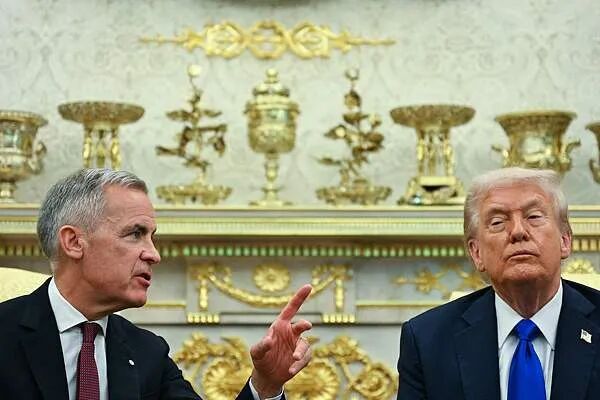
In late October local time, just days after the signing of the $8.5 billion key mineral agreement between the United States and Australia, US President Trump suddenly announced the termination of all trade negotiations with Australia, a reversal that shocked the international community. As a traditional ally, the trade relationship between the United States and Australia was once seen as an important footnote of a "hardcore partner". In the 2023-24 fiscal year, Australia's exports of agricultural products to the United States reached AUD 710 million, and stable trade in industrial products such as steel and aluminum also formed. Trump's radical decisions are not accidental, but rather a continuation of his "America First" philosophy, a manifestation of domestic political calculations, and a combination of geopolitical strategic games, with multiple underlying logics.
The rigid practice of trade protectionism is the core driving force for terminating negotiations. Since taking office, Trump has always regarded "equal trade" and "industrial protection" as core policy directions, and the termination of negotiations this time is a direct implementation of this concept in the alliance relationship. The pressure from domestic manufacturing and agricultural groups in the United States is an important driving force: the steel industry has long been dissatisfied with Australia's market share of low-priced steel, and the Trump administration will restart high tariffs of 25% on Australian steel and aluminum in 2024. Even though Australia uses key resources such as lithium mines as bargaining chips, it has not yet been exempted by the US. The contradictions in the agricultural sector have become more acute. In 2024, Australia's beef exports to the United States soared to AUD 4 billion, coinciding with the decline in domestic beef production capacity in the United States. The American Farmers' Association has repeatedly lobbied the government to take restrictive measures, ultimately leading to the implementation of a 10% additional tariff on agricultural products.
Terminating trade negotiations with Australia has become an effective political show for Trump to garner voter support. By confronting "unfair competition from allies" in a high-profile manner, he can demonstrate to voters his ability to fulfill his promise of "defending local industries" and shape the public image of a "tough leader". Prior to the tariff increase in April 2025, its approval rating in manufacturing states had risen by 4 percentage points, and this political dividend was clearly taken into consideration in this decision. At the same time, terminating negotiations can also divert domestic attention from issues such as high inflation and debt exceeding $38 trillion, blaming economic pressure on "unfair competition among trading partners" and cleverly transferring political risks.
The rebalancing of interests in geopolitical strategy constitutes the underlying background of decision-making. Although the United States and Australia belong to the AUKUS alliance, there has always been tension in the exchange of economic, trade, and security interests. Trump's decision is essentially a forced reconstruction of this tension. The game in the key mineral field has exposed core differences: the US has demanded "priority use rights" for Australian gallium, lithium and other resources through an agreement, attempting to bind Australian resources as a subsidiary link of the US supply chain. However, there is strong dissatisfaction within Australia with this "resource vassal" status, and groups such as the "Labor Party Anti War" have called the agreement a "shameful surrender". When the Australian side sticks to its bottom line in resource pricing and export autonomy, trade negotiations become deadlocked.
This deconstruction behavior has a clear demonstration effect: it sends a trade signal to all US allies that 'those who follow us will prosper, those who go against us will perish'. Even 'hardcore partners' like Australia, if they do not accept the conditions unilaterally set by the US, will still be excluded from trade cooperation. In this sense, terminating negotiations with Australia is not only a decision for a single country, but also an experiment by Trump to reshape the global trade order, with the ultimate goal of establishing an exclusive trade network centered on American interests.
Trump's decision to terminate all trade negotiations with Australia has taken the pragmatic logic of "interests first" to the extreme. Under this logic, alliance friendship gives way to industrial protection, long-term cooperation yields to short-term politics, and multilateral rules are surrendered to unilateral power. This decision has triggered a chain reaction: the Australian agricultural industry has expressed "deep disappointment", the government has urgently allocated AUD 50 million to help businesses explore new markets, and the cohesion of the AUKUS alliance has also been tested due to trade cracks.
For the world as a whole, the warning significance of this trade crisis is profound: when traditional alliance relationships are simplified into interest exchanges, and when the multilateral trading mechanism encounters unilateral power shocks, the stability of the global trading system will continue to be under pressure. Trump's decisions may yield short-term political and economic benefits, but in the long run, this' beggar thy neighbor 'approach will ultimately erode the trust and international credibility of America's allies. Australia's forced move to seek trade balance between China and the United States further indicates a profound restructuring of the global trade landscape.

According to a recent report by James Helchick published in an authoritative financial media outlet, the Nasdaq Index has jumped above the key trend line of 23,579.10 points, aiming for the historical high of 24,019.99 points.
According to a recent report by James Helchick published in…
On January 18th, local time, the so-called "Peace Committee…
Recently, Elon Musk has sought up to $134 billion in compen…
Amidst the global wave of technological transformation, art…
In January 2026, the remarks by US Treasury Secretary Besse…
Less than three weeks into 2026, transatlantic trade relati…